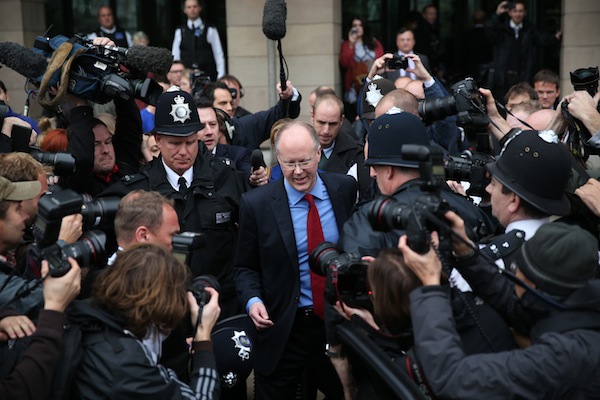George Entwistle seemed rather mild-mannered at his first appearance before the Culture, Media and Sport select committee this morning. But after listening to him for two hours, MPs were starting to suggest that the BBC director general was making a quietly savage attack on one of his juniors. It will be astonishing if, after Entwistle’s evidence, Newsnight editor Peter Rippon is not called before the committee.
Entwistle told the committee that he had asked Rippon to ‘step aside because of my disappointment at the inaccuracies in the blog… he hasn’t stepped aside to prepare or the Pollard review, he’s stepped aside because of it’. He also made clear that he was disappointed because he relied on ‘the editor of a programme having a full grip and understanding of the investigation they were in charge of, and in this case it doesn’t seem to have been happening’ and that he ‘absolutely would have expected the editor of a programme to have given a definitive and factually accurate account of what happened on that programme’.
But his own evidence was disappointing, too. He got off to a particularly shaky start with Philip Davies, who opened the questioning with a ferocious barrage of demands for figures and details of the extent to which Entwistle had made enquiries about the current situation. Davies blasted what he described as Entwistle’s ‘lamentable lack of knowledge about any of the questions that I’ve asked’. Some of his questions were a little unfair: at one point he asked for details of how many complaints of sexual harassment there had been at the BBC each year since the 1960s. But there were other points that one might reasonably expect the director general to have researched over the past few weeks, or at least since he knew he would be making an appearance before this committee.
At some points he tried to justify his lack of knowledge and what Paul Farrelly claimed was ‘an amazing lack of curiosity on the part of a journalist’ as appropriate, arguing it was important in his role that he maintain some distance by not interviewing the Newsnight reporters himself. His defence of the corporation for examining its own practices so thoroughly might have sounded less hollow had ITV not broadcast its own investigation before Panorama had got in on the act.
Entwistle also repeatedly stressed that, as with many sex offenders, Jimmy Savile was able to operate a sophisticated cover for his abuses. But the real question – and one the committee did not labour on – was how Savile was able to continue behaving as he did when there were so many rumours about him circulating at the time. It’s not enough to say that he was operating under a sophisticated cover: the reports of the past few weeks have suggested that numerous staff at the BBC and the hospitals where the abuse is alleged to have taken place were aware or at least suspicious of what was going on. What is more striking in this case was how careless Savile seemed to be, rather than the care he took to cover his activities up.







Comments